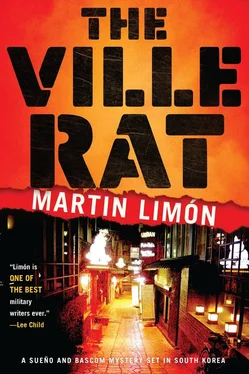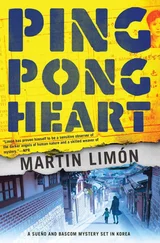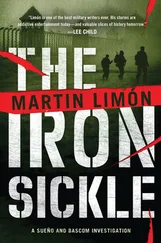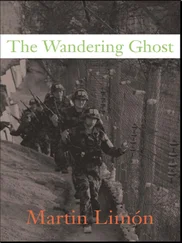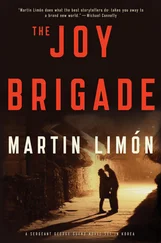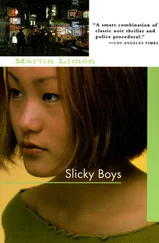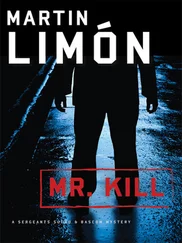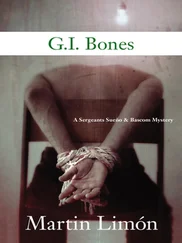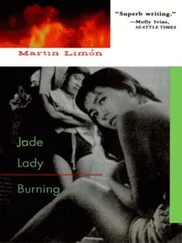Martin Limon - The Ville Rat
Здесь есть возможность читать онлайн «Martin Limon - The Ville Rat» весь текст электронной книги совершенно бесплатно (целиком полную версию без сокращений). В некоторых случаях можно слушать аудио, скачать через торрент в формате fb2 и присутствует краткое содержание. Год выпуска: 2015, Издательство: Soho Press, Жанр: Полицейский детектив, на английском языке. Описание произведения, (предисловие) а так же отзывы посетителей доступны на портале библиотеки ЛибКат.
- Название:The Ville Rat
- Автор:
- Издательство:Soho Press
- Жанр:
- Год:2015
- ISBN:нет данных
- Рейтинг книги:3 / 5. Голосов: 1
-
Избранное:Добавить в избранное
- Отзывы:
-
Ваша оценка:
- 60
- 1
- 2
- 3
- 4
- 5
The Ville Rat: краткое содержание, описание и аннотация
Предлагаем к чтению аннотацию, описание, краткое содержание или предисловие (зависит от того, что написал сам автор книги «The Ville Rat»). Если вы не нашли необходимую информацию о книге — напишите в комментариях, мы постараемся отыскать её.
The Ville Rat — читать онлайн бесплатно полную книгу (весь текст) целиком
Ниже представлен текст книги, разбитый по страницам. Система сохранения места последней прочитанной страницы, позволяет с удобством читать онлайн бесплатно книгу «The Ville Rat», без необходимости каждый раз заново искать на чём Вы остановились. Поставьте закладку, и сможете в любой момент перейти на страницу, на которой закончили чтение.
Интервал:
Закладка:
Ernie and I pushed through the metal-reinforced front door. A young cop in a khaki uniform rose to his feet and shouted a formal greeting. Behind a low railing, Ernie and I stood for a moment. The room smelled of fermented cabbage and cheap Korean tobacco. A sad-looking elderly couple sat on a bench, looking as if they’d been waiting there since they were young. A slightly older police officer, a lieutenant, emerged from a back office and, as if he was expecting us, motioned for us to follow. As we marched down a cement hallway, he said in halting English, “Inspector Gil soon be here.” He ushered us into a small conference room with eight straight-backed chairs arrayed around a rectangular wooden table.
“Please, sit,” he said.
After he left the room, I sat. Ernie paced.
Two minutes later, a young woman in KNP uniform entered holding a stainless-steel tray. On it was a metal pot of hot water and four porcelain mugs. She set the tray in front of us, and without ever looking directly at us, bowed and backed out of the room.
“She likes you,” Ernie said. “I can tell.”
The tray held a few Lipton tea bags and a small jar of Folgers freeze-dried coffee. The water was steaming. I poured myself a cup and used a tin spoon to stir in the coffee. Ernie followed suit, stirring some sugar into his.
We sipped and waited, but not for long. Before I finished my coffee, Inspector Gil Kwon-up, Mr. Kill, barged into the room.
“I found him,” he said.
“Found who?”
“Come, I’ll show you.”
We set our mugs down and followed Mr. Kill out of the room. Outside, he motioned to his right. “It’s not far. We can walk.”
We passed wood-planked storefronts with hangul writing that said things like grain storage and agricultural implements and seasonal loans. On the other side of town, I knew, were about a million eateries and makkoli houses, purveyors of rice wine, catering to the needs of the thousands of ROK soldiers stationed in the military compounds dotting the hills along the Imjin River. There were even a few kisaeng houses for the officers. But we were in the more utilitarian part of town.
A half-mile on, Mr. Kill turned left into a narrow pedestrian pathway. It was muddy and just wide enough for us to walk single file, occasionally dodging old women with huge bundles of laundry balanced atop their heads. Inspector Gil pulled a sheet of paper out of his jacket pocket. He showed it to me: 113 bonji, 47 ho. An address. The walls on either side of the walkway were made of brick and cement block and occasionally wood. Every few feet, rotted panels in recessed gates were slashed with numbers in various styles of handwriting and various shades of paint. The Korean address system makes sense. Bonji is the neighborhood and ho is the number, but sometimes the sequence is off due to the constant tearing down and building up of new residences. We found number 46 and number 48, but no 47 ho . Mr. Kill asked a middle-aged woman stepping carefully through the mud if she could direct him to number 47. She pointed toward a narrow alley. It was there, in the darkness, about twelve feet in.
Mr. Kill stepped up to the gate and pounded on grease-stained planks. Nothing happened. He pounded again. Finally, from within, a woman’s voice said, “Nugu-seiyo?” Who is it?
“Kyongchal,” Mr. Kill answered. Police.
Urgent whispering. Cautious footsteps. Finally, the gate creaked open. Mr. Kill ducked inside. Ernie and I followed.
The courtyard was much like the pathway outside, composed of moist dirt. But there was an iron pump in the center surrounded by a circle of rocks. Beyond that was a low porch fronting a row of oil-papered sliding doors. In front of an open door sat a man in a khaki uniform, just reaching down to slip on a highly polished pair of black combat boots. As we walked across the courtyard, he looked up at us. I recognized him. Kim. The Korean contract gate guard who we’d seen in front of Camp Pelham working with the MP known as Specialist Four Austin.
Mr. Kill greeted him politely, bowing slightly. Then he pulled out his badge and told him in Korean that we had a few questions. The man nodded. I noticed he had bags under his eyes and he looked tired; the kind of fatigue that comes not from losing a night’s sleep, but from four or five decades spent clinging to the lowest rungs on the economic ladder in a country ravaged by a brutal, endemic poverty. The woman who I assumed to be his wife scurried about her business, splashing water into a pail and sloshing it on the cement floor of the walk-in byonso .
Mr. Kill spoke in rapid Korean, getting to the point without any nonsense or preamble. I followed most of it. The gate guard nodded occasionally, shook his head at other times, and finally spoke in a slow, gravelly voice. Ernie waited near the gate, hands in his pockets.
When we were done, Mr. Kill thanked the man, turned, and started to step toward the gate.
As he did so, the gate guard spoke again. “Chotto matte.”
Mr. Kill stopped and turned. It was Japanese, but even I knew what it meant. Wait a moment. Until 1945, while Korea had been colonized, Japanese had been the official language of the country. Older people had learned it in school when they were young. These days-and even then-it was the hated language of occupation. In my months and years here in Korea, I couldn’t remember ever having heard it spoken. Even Mr. Kill seemed surprised.
Gate guard Kim continued to speak in Japanese to Mr. Kill. He knew from our first encounter that I could speak Korean and didn’t want me to understand. Mr. Kill frowned as he listened. Finally, the gate guard stopped talking, and without acknowledging him further, Mr. Kill turned and ducked through the small opening in the gate.
Ernie glanced at me, raising one eyebrow. He knew something strange had happened. We followed Kill outside to the muddy lane.
When we reached the main road, Mr. Kill slowed enough for me to catch up.
“Did you understand,” he asked me, “the Korean part?”
“Most of it.”
It had been a routine set of denials. The gate guard said he didn’t know who the woman in the red dress was, he didn’t know where she’d come from or how she’d gotten there, and when she asked the American MP for help he’d told her to get lost. He claimed the woman spoke to the MP in broken English but she hadn’t spoken to him at all.
“But then,” I said, “gate guard Kim spoke Japanese to you.”
“Yes.” Mr. Kill’s mouth was lined with anger.
“What did he say?” I ventured.
“He said that the woman claimed that someone was after her.”
“An American?”
“She didn’t say. She was hysterical. Not giving much coherent information, just glancing back over her shoulder and begging the American MP for help.”
“That was it?”
“Then he went on, using Japanese, a language I don’t like listening to very much. He said that it didn’t matter what these whores did for their foreigners. If they ended up dead, it was better for us, because then Korea would be purified.”
“He said that?”
“Yes. And he said he applauded the man who killed her. He only regretted that her body had been left in the Sonyu River.”
“Why?”
“According to him, she defiled the water.”
Ernie and I slurped our noodles, using both a flat spoon and chopsticks. Mr. Kill had already finished his bowl and leaned back contentedly, staring at the sea of short black haircuts surrounding us.
We were in a busy chophouse with picnic-like tables and movable two- or three-man benches. The place was packed with Korean soldiers in dark-green fatigues, all of them with their hats pulled off because they were indoors and most of them shouting and gesticulating at one another, laughing and enjoying their food and the raucous company. The place was as noisy as a Cape Canaveral launch pad.
Читать дальшеИнтервал:
Закладка:
Похожие книги на «The Ville Rat»
Представляем Вашему вниманию похожие книги на «The Ville Rat» списком для выбора. Мы отобрали схожую по названию и смыслу литературу в надежде предоставить читателям больше вариантов отыскать новые, интересные, ещё непрочитанные произведения.
Обсуждение, отзывы о книге «The Ville Rat» и просто собственные мнения читателей. Оставьте ваши комментарии, напишите, что Вы думаете о произведении, его смысле или главных героях. Укажите что конкретно понравилось, а что нет, и почему Вы так считаете.
